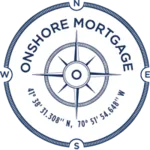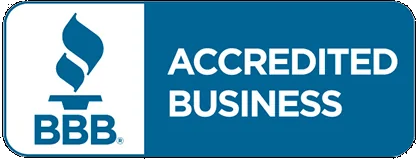

Understanding Your Mortgage Closing Costs
Understand closing costs and learn strategies to manage them so you can navigate your home purchase or refinance with confidence. Onshore Mortgage is here to help.
Closing on a new home is an exhilarating journey, marking the culmination of your homebuying process. With the closing finalized, you'll soon hold the keys to your new home, ready to embark on this exciting chapter of your life. However, it’s important to remember that the down payment isn’t the only financial commitment you’ll face. There are additional costs, known as closing costs, that you’ll need to prepare for as part of the mortgage process.
At Onshore Mortgage LLC, we understand that buying a home is stressful and navigating these expenses can be daunting, especially for first-time homebuyers. As your trusted mortgage broker, our role is to guide you through every step of this process, ensuring that you are fully informed and prepared. In this post, we’ll explore what closing costs entail, break down the various components, and offer strategies on how to manage them effectively. By understanding these costs upfront, you can avoid any surprises at the closing table and confidently move forward in securing your new home.
What Are Mortgage Closing Costs?
Closing costs, also known as loan settlement costs, are the expenses associated with obtaining a mortgage loan and finalizing a home purchase or refinance. These costs are separate from the property’s sale price and can catch buyers off guard if they’re not adequately prepared. As a mortgage broker, helping our clients understand these costs early in the process can ensure a smoother, stress-free closing.
What’s Included in Closing Costs?
Closing costs can vary widely depending on the mortgage broker you choose, mortgage loan program, and location of the property. While the specific expenses may differ, certain recurring payments and one-time fees are common seen as part of a mortgage closing.
Recurring Payments
- Property Taxes: Property taxes are assessed by local or municipal governments and are typically prorated at closing. After the loan closes, buyers may be eligible for a property tax exemption or discount, so it’s essential to contact your county for more information. In most cases the lender will require you to set up an escrow account. An escrow account is a separate account that the lender manages on your behalf. The purpose of this account is to ensure that your property taxes and homeowner’s insurance are paid on time.
- Homeowner’s Insurance: Homeowner’s insurance protects the property against losses and damage. This coverage is generally required by lenders and must be paid upfront or as part of the mortgage’s escrow account.
One-Time Expenses
- Down Payment: The amount of your down payment depends on several factors, including your financial situation, the type of loan you’re applying for, and your homeownership goals.
- Origination Fee: This is a fee charged by the mortgage broker to cover the costs of processing the loan. It’s typically a percentage of the loan amount and is an essential part of closing costs that buyers need to be aware of. This fee can be found in Section "A. Origination Charges: on a Loan Estimate".
- Discount Points: Discount points are pre-paid interest charges that allow borrowers to lower their mortgage interest rate. Clients can choose to pay anywhere from 0 to 3 points, depending on how much they wish to reduce their rate. This fee can be found in Section "A. Origination Charges: on a Loan Estimate".
- Appraisal Fee: An appraisal fee is typically paid outside of closing and charged by a licensed appraiser to determine the market value of the home. This fee is crucial in ensuring the sale price aligns with the property’s value, which affects the loan amount. Lenders will only lend based on the appraised value of the home. This home appraisal will get ordered through an independent third party "appraisal management company" (AMC). This fee can be located in Section "B. Services You Cannot Shop For".
- Processing Fee: This lender fee covers the cost of processing the loan application. It’s another essential component of closing costs that should be discussed with your loan officer early on. This fee can be found in Section "A. Origination Charges: on a Loan Estimate".
- Attorney / Title Fees: These are fees paid to the closing attorney to close the loan. These can include charges such as their settlement or closing fee as well as "lender" and the optional "owners" title insurnace. These fees can be found in Section "C. Services You Can Shop For".
- Other Common Fees: These can include underwriting fees, credit report fee, Private Mortgage Insurnace (PMI) , government fees and state recording fees. It’s important to obtain a comprehensive list of ALL costs early in the loan process so that you can budget accordingly.
Can Closing Costs Be Included in a Mortgage Loan?
For clients refinancing their mortgage, it is comon practice to include closing costs in the loan amount. This approach can help reduce the cash needed at closing, making it easier for you to manage your finances. However, although its common to include these charges as part of your refinance, paying these costs upfront if you can afford it can save significant money in the long run. Rolling the closing costs into your mortgage increases the total loan amount owed and, consequently, the amount interest paid over time.
How Much Are Closing Costs?
At Onshore Mortgage, we provide clients with a Loan Estimate within 3 days after they submit a loan application, giving you a clear idea of the expected closing costs.
Who Pays Closing Costs on a Purchase?
While homebuyers generally expect to pay the fees associated with their mortgage loan, there’s often room for negotiation. Seller concessions, where the seller agrees to cover some of the buyer’s closing costs and escrows, can make a property more attractive and affordable for buyers. The amount of allowable seller consessions depends on the loan option you have choosen.
If you have any questions or need further assistance with understanding closing costs, feel free to contact Onshore Mortgage, LLC. We’re here to help you every step of the way.

Latest Posts


Grant R. Menard MLO NMLS# 17308
CLICK HERE
Onshore Mortgage

Massachusetts Division of Banks NMLS#MB1995582
CLICK HERE
The information contained in this site has been prepared by an independent third party and is distributed for educational purposes only. This is designed to give helpful tips on the mortgage process and is not intended to give legal advice.
Information is considered reliable but not guaranteed. This is not a pre-qualification, pre-approval, loan approval or commitment to lend. We arrange but do not make loans.
© 2020 Onshore Mortgage, LLC. all rights reserved.


.webp)
